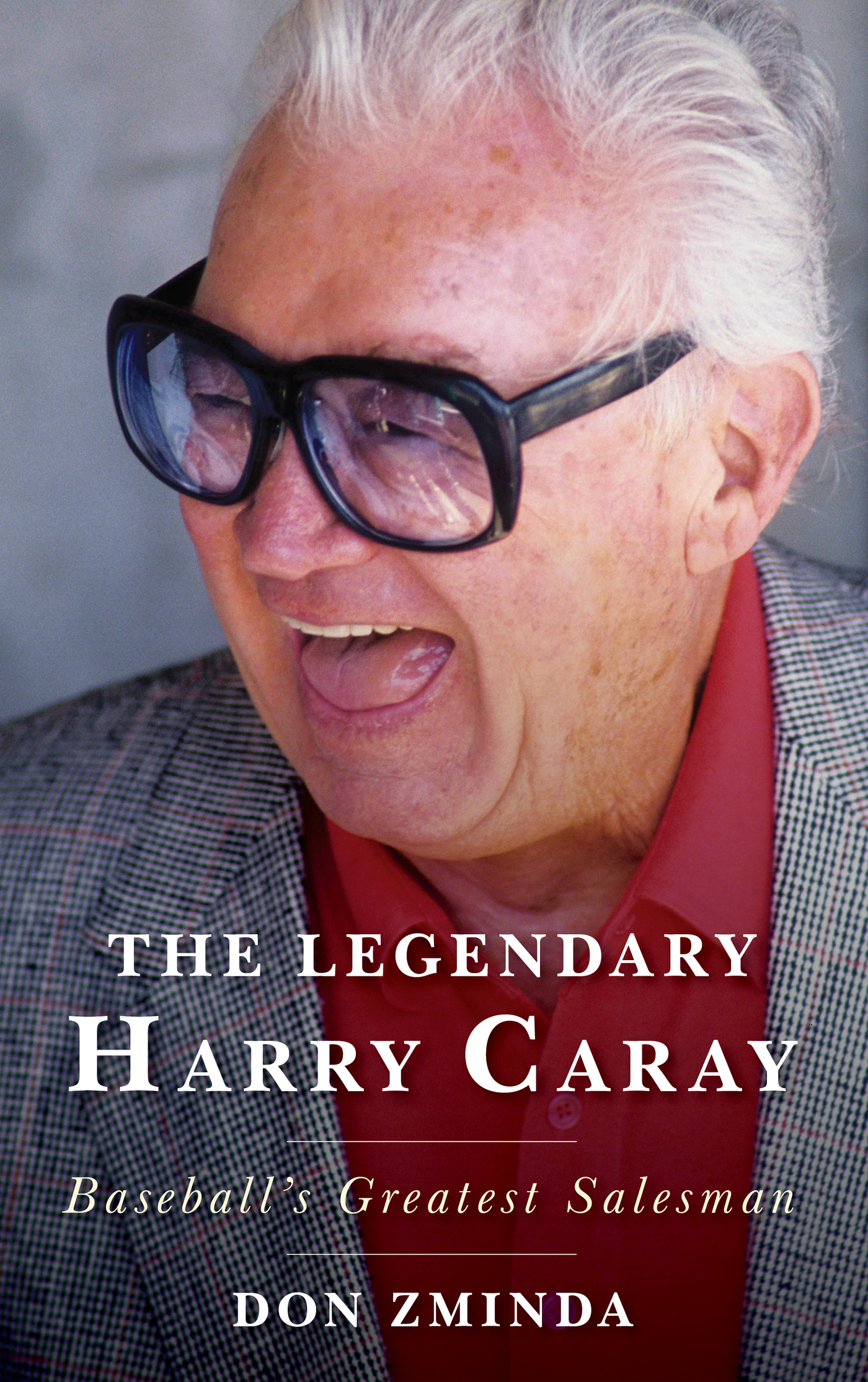The Legendary Harry Caray
The Legendary Harry Caray
Baseballs Greatest Salesman
Don Zminda
ROWMAN & LITTLEFIELD
Lanham Boulder New York London
Published by Rowman & Littlefield
An imprint of The Rowman & Littlefield Publishing Group, Inc.
4501 Forbes Boulevard, Suite 200, Lanham, Maryland 20706
www.rowman.com
Unit A, Whitacre Mews, 26-34 Stannary Street, London SE11 4AB
Copyright 2019 by The Rowman & Littlefield Publishing Group, Inc.
All rights reserved. No part of this book may be reproduced in any form or by any electronic or mechanical means, including information storage and retrieval systems, without written permission from the publisher, except by a reviewer who may quote passages in a review.
British Library Cataloguing in Publication Information Available
Library of Congress Cataloging-in-Publication Data
Names: Zminda, Don, author.
Title: The legendary Harry Caray : baseball's greatest salesman / Don Zminda.
Description: Lanham, Maryland : Rowman & Littlefield, [2019] | Includes bibliographical references and index.
Identifiers: LCCN 2018034792 (print) | LCCN 2018060022 (ebook) | ISBN 9781538112953 (electronic) | ISBN 9781538112946 (cloth : alk. paper) | ISBN 9781538159071 (pbk : alk. paper)
Subjects: LCSH: Caray, Harry. | SportscastersUnited StatesBiography.
Classification: LCC GV742.42.C37 (ebook) | LCC GV742.42.C37 Z65 2019 (print) | DDC 070.449796092 [B]dc23
LC record available at https://lccn.loc.gov/2018034792
 TM The paper used in this publication meets the minimum requirements of American National Standard for Information Sciences Permanence of Paper for Printed Library Materials, ANSI/NISO Z39.48-1992.
TM The paper used in this publication meets the minimum requirements of American National Standard for Information Sciences Permanence of Paper for Printed Library Materials, ANSI/NISO Z39.48-1992.
Printed in the United States of America
Acknowledgments
During the 20-plus years I spent working in broadcast support for STATS LLC, I often considered writing a book about Harry Caray, one of the preeminent sports broadcasters of all time. But it wasnt until I retired in 2016, and Christen Karniski of Rowman & Littlefield contacted me to inquire whether I was working on any book ideas, that I thought, Hey, now I finally have the time to write that Caray book! So, thanks first of all to Christen for helping to get me going and shepherding me through the process of producing this book. Thanks also to Andrew Yoder, my R&L production editor, for his great help in taking the book to completion.
Once I got into the work, I knew I wanted to interview people who knew Caray personally, including those who had worked with or written about him. Deb Segal, a personal friend who had worked in Chicago media for many years, helped me get in touch with Mike Leiderman, Rich King, and Al Lerner, who took time to share their thoughts about Harry. Thanks to Deb for laying the groundwork, and to Rich, Al, and, particularly, Mike, for providing their insights.
Mike Leiderman helped me get in touch with longtime Chicago sportswriter Rick Telander, whose thoughts about Caray were very illuminating, and Mark Liptak, a Chicago White Sox historian and the driving force behind the website flyingwhitesox.com. Along with sharing personal experiences with Caray dating back to his teenage years, Mark provided copies of his interviews with people from the Caray years that had appeared on the website.
I had known sportswriter and author Ron Rapoport since the 1980sI was his postman during my pre-STATS days!and when I learned Ron was now living near my Los Angeles home, I contacted him and asked if he could meet for lunch and talk about Harry. Ron not only gave me a helpful interview, but also suggested that I get in touch with Bob Verdi, who had collaborated with Caray on his 1989 autobiography, Holy Cow!, and Grant DePorter, CEO of Harry Carays Restaurant Group. Bob and Grant were tremendously helpful to me, and through Grant I was able to arrange an interview with Dutchie Caray, Harrys remarkable widow. Ron Rapoport also helped me get in touch with David Israel, who had written about Harry dating back to the early 1970s and originally been slated to collaborate with Caray on Holy Cow! Thanks to David for a candid interview.
I have known Bob Vorwald, director of production for WGN-TV in Chicago, and Len Kasper, the Chicago Cubs television voice since 2005, for more than a decade, and both were generous with their help. Thanks to Bob for his interview, and to Len for his e-mail about Harry, the Cubs, and WGN (thanks also to Bob for helping me get in touch with Chicago sports broadcast legend Jack Rosenberg). Through my past work in sports broadcast support, I was able to interview a number of people who had worked with Caray or had experience with him. Thanks to Bob Brenly, Thom Brennaman, Bill Brown, Pat Hughes, Jim Kaat, Wayne Larrivee, Ed Randall, and Dewayne Staats for granting me some time to talk about Harry. And big thanks to Tim McCarver, whose experiences with Caray stretched back to Tims playing days with the St. Louis Cardinals.
I have been a member of the Society for American Baseball Research (SABR) for almost 40 years, and several SABR members were helpful to me on this project. Thanks to Bill Deane for explaining the nuances of the National Baseball Hall of Fames Ford C. Frick Award; Steve Gietschier for guidance on the St. Louis part of Carays career (along with getting me in touch with St. Louis sportswriter Rick Hummel); and Dan Schlossberg, who collaborated with Milo Hamilton on Milos autobiography. Thanks also to Father John Smyth of Maryville Academy, a place that was important to Caray, for his time in talking about Harrys charity work.
Of the almost 30 people I interviewed for this book, three were particularly important. Bob Costas, who has written about Caray, worked on television documentaries with Harry, and eulogized Caray after his death, was kind enough to spend a few minutes talking about Caray (thanks also to Steve Horn for working to hook me up with Bob). Ned Colletti, whose long career in baseball included Carays early years with the Cubs, spoke about not only Caray as a broadcaster, but also Caray as a personal friend. And Chip Caray, Harrys grandson and a noted broadcaster in his own right, could not have been more generous in sharing his personal thoughts about his grandfather. Many thanks to all.
Thanks to my longtime friend and former Chicago Tribune reporter John McCarron for sharing his documents on the White Sox stadium saga.
Thanks to my great STATS colleague and friend Meghan Sheehan for helping me contact people in broadcasting. And thanks to Meghan and my other friends and former coworkers for being in my corner during this work.
Finally, thanks to my personal support team for their help on this long (and sometimes tedious) project: my wife Sharon; my stepsons Steve and Mike; Mikes wife Nancy, and our grandsons, Matt and Sean.
Don Zminda
Los Angeles
June 2018
Introduction
Harry Caray was not your typical baseball announcer.
When Caray had serious medical issues at different points during his career, the president of the United Statesone time a Republican, the other time a Democratcalled to check on his health.
One of those presidents, Ronald Reagan, called Harry on the air during a Chicago Cubs game to welcome him back after Caray had suffered a stroke. A year later, Reagana baseball broadcaster himself in his younger daysdropped in on Harry at Wrigley Field and helped him do a little play-by-play.
Next page
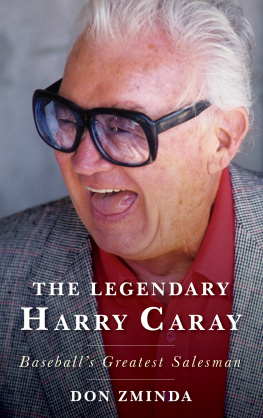

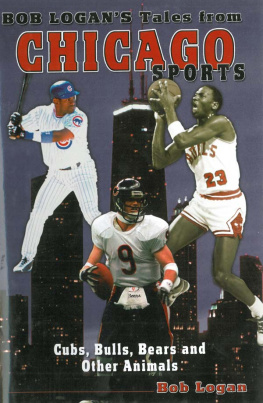
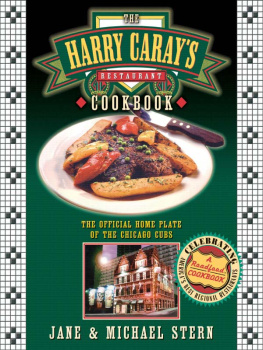
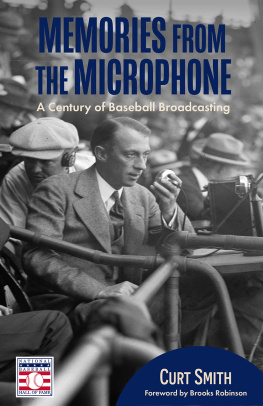
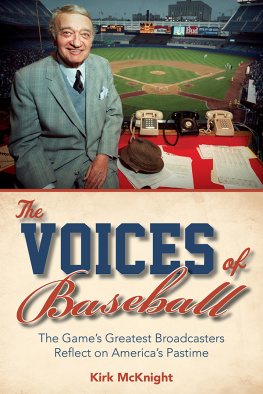
 TM The paper used in this publication meets the minimum requirements of American National Standard for Information Sciences Permanence of Paper for Printed Library Materials, ANSI/NISO Z39.48-1992.
TM The paper used in this publication meets the minimum requirements of American National Standard for Information Sciences Permanence of Paper for Printed Library Materials, ANSI/NISO Z39.48-1992.